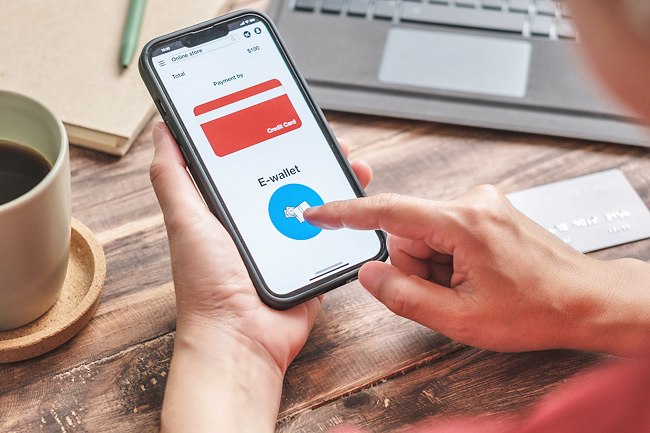As financial technology advances, so do the associated risks. Recent increases in smartphone malware, phishing, and online fraud have impacted the region, including Brunei Darussalam.
To counter these threats, financial institutions are enhancing their systems. Yet, protecting personal data and devices is vital.
Collaboration between consumers and institutions is key to building a strong defence against theft and loss. This four-part series by the Brunei Darussalam Central Bank offers tips on responsible online financial behaviour, starting with protecting personal data.
Safeguard your personal data
Protecting your personal data is more crucial than ever.
Personal data refers to information that can be used for identification or verification purposes, such as your full name, date of birth, identity card number, phone number, residential address, and email address.
Here are some essential tips to help you safeguard your personal information.

Verify authenticity
Always ensure that any call claiming to be from your bank is legitimate by contacting your bank through their official communication channels. Scammers often pose as bank representatives to steal your personal information.
Keep personal information private
Never disclose your personal information over the phone or on social media. Such information can be used for identity theft.
Additionally, avoid sharing personal details and images on social media that could allow malicious individuals to learn more about you and access your personal data without your consent.
Secure sensitive information
Other types of information that you should always keep safe to prevent unauthorised access or misuse include:
Bank account numbers: Keep these confidential to avoid unauthorised transactions.
Credit or debit card details: This includes the card number, expiry date, and CVV code. Sharing these can lead to financial fraud.
Internet or mobile banking credentials: Your username and password should be kept secure to protect your online banking activities.
Online shopping and e-wallet accounts: Ensure the security of your login details to prevent unauthorised purchases.
Travel plans and boarding passes: Barcodes on boarding passes can reveal personal information.
Receipts or invoices with QR codes: These can also contain sensitive information.
Shipping labels for online purchases: Protect these to prevent identity theft. Names of immediate family members: Sharing this information can make it easier for scammers to deceive you.

The risks of sharing access
Did you know that sharing access to your mobile phone number, bank account, or debit card with someone else could unknowingly involve you in illegal activities?
You could be charged with assisting in money laundering, which is a criminal offence under Section 3 of the Criminal Asset Recovery Order (CARO), 2012.
If found guilty, you may face a fine of up to BND500,000 or imprisonment for a term not exceeding 10 years. So, be careful and never give away your personal information to anyone you do not know and trust.
Safeguarding physical items
In today’s interconnected world, both digital and physical assets are susceptible to malicious threats. Ensuring the security of physical items containing sensitive information is essential for protecting your financial wellbeing.
Here are some critical items to safeguard and best practices to keep them secure.
Bank account passbooks contain vital financial details that should be kept secure. These documents are essential for tracking your account activities and balances, making them a target for theft or misuse.
Credit and debit cards should be protected to prevent unauthorised access and fraudulent transactions. Keep these cards in a safe place and monitor your account statements regularly for any suspicious activity.
Electronic devices such as mobile phones, tablets, laptops, and any other devices used for financial transactions must be secured against data breaches.
Ensure that these devices are password-protected, and regularly update their security software to protect against malware and hacking attempts.
Authentication tokens issued by your bank for secure account access must also be kept in a safe place. These devices provide an additional layer of security for your online banking activities and should be treated with the same care as your other financial tools.

Best practices
Properly dispose of and destroy documents containing sensitive financial information, such as bank statements, receipts, expired credit and debit cards, and shipping labels. Shredding these documents ensures they cannot be reconstructed and misused.
Never leave physical items containing sensitive information unattended, even briefly. Always keep these items with you or store them in a secure location to prevent theft or unauthorised access.
Stay tuned for the next article in this series, where we will share more tips and advice on protecting yourself online! – BRUNEI DARUSSALAM CENTRAL BANK






